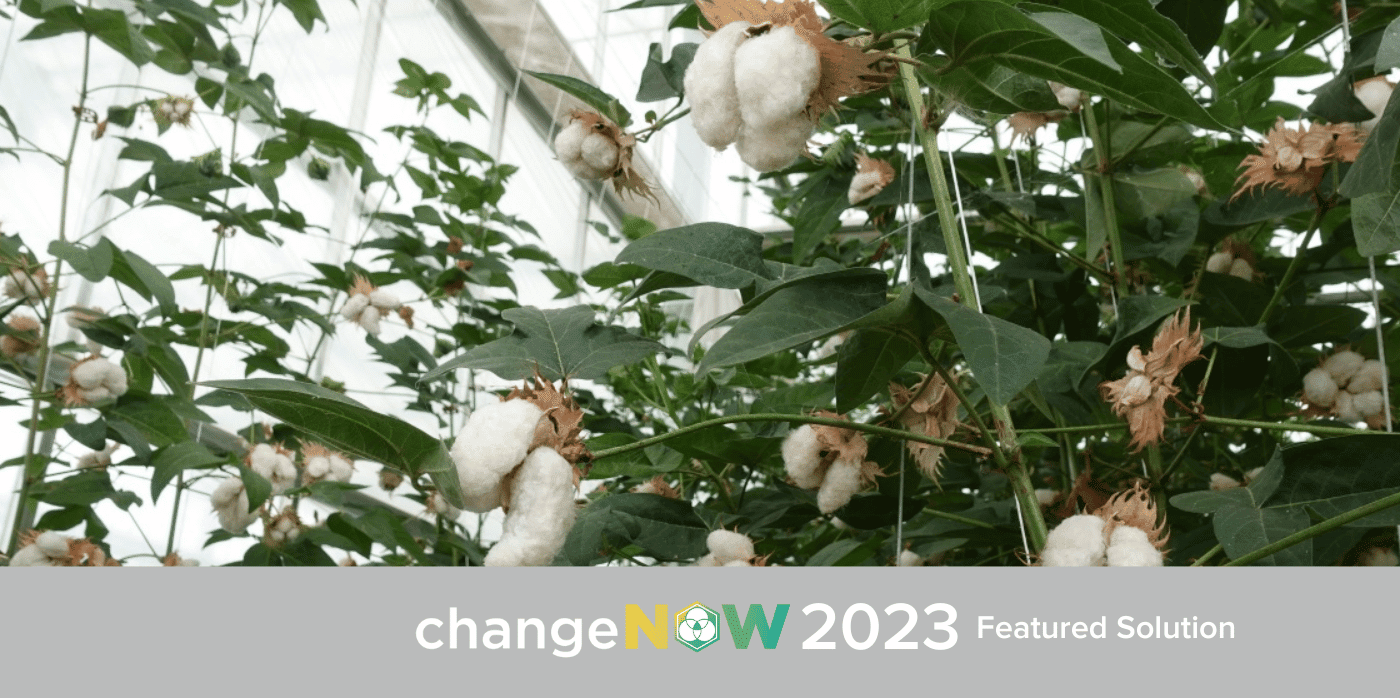
Spotted: According to the World Wildlife Fund (WWF), cotton is the most widespread non-food crop in the world. Its production employs almost seven per cent of all labour in developing countries, with around half of all textiles being made from cotton. Yet, while the global reach of cotton is wide, current cotton production methods are environmentally unsustainable — involving high water use and contamination, soil degradation, and pesticide pollution.
To solve these issues, Materra has developed a pioneering method for growing cotton in climate-controlled greenhouse environments. Its method can produce up to four times more yield per surface area compared to conventional outdoor cotton farming. It also uses around 80 per cent less water, no pesticides, and produces around 30 per cent less carbon dioxide than chemically intensive cotton farming.
Materra’s approach is designed to ‘future-proof’ the cotton industry – which around 250 million people rely on for income. By using resources more efficiently, Materra’s system also acts as a form of climate change mitigation – transforming brownfield land into productive agricultural land. By using land more effectively, the company will be able to join forces with other impactful schemes that support biodiversity and carbon sequestration. Materra also highlights that one big advantage of their system as its flexibility, and ability to adjust the different parameters to produce the best outcome.
The fashion industry is one of the most wasteful on the planet. Every aspect of the fashion supply and consumption chain produces huge amounts of waste — 87 per cent of the materials and fibres used to make clothing will end up in either incinerators or landfills. Luckily, innovators the world over and now working to change this. Springwise has recently spotted improvements that range from creating clothing from a mycelium-based material to non-toxic, low-energy dyeing processes.
Written By: Lisa Magloff

